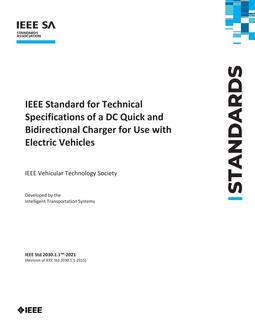Knowledge Hub
Bridging Policy and Innovation: Using Regulatory Sandbox to Drive New Mobility Innovations
2021
Author(s): Ola Mobility Institute
Mobility is transcending the traditional notion of traveling, hurtling towards automation, IoT and MaaS among other things. Technologies and business models are constantly evolving to keep pace with changing preferences and solutions.
European Union CO2 Standards for New Passenger Cars and Vans: Technology Potential and Cost for Reducing Vehicle CO2 Emission Levels
2021
Author(s): International Council on Clean Transportation (ICCT)
A variety of technologies for reducing new passenger car type-approval CO2 emission levels are available, including efficiency improvements of combustion engine vehicles and transitioning to electric vehicles.
A Retrospective Review of China’s Clean Diesel Program
2021
Author(s): International Council on Clean Transportation (ICCT)
Since the 1980s, China has implemented a series of policies and regulations to address harmful diesel emissions, and this report is a comprehensive overview of the best practices emerging from the Clean Diesel Program.
European Union CO2 Standards for New Passenger Cars and Vans: Interim Targets for New Vehicle CO2 Emissions
2021
Author(s): International Council on Clean Transportation (ICCT)
With introduction of the EU’s first CO2 standard for new passenger cars, official type-approval emissions decreased at a rate of about 3.5% per year, compared to about 1.2% prior to regulation.
China’s New Energy Vehicle Industrial Development Plan for 2021 to 2035
2021
Publisher/Organisation: International Council on Clean Transportation (ICCT)
China’s New Energy Vehicle Industrial Development Plan for 2021 to 2035 (“Plan 2021–2035”) follows the Energy-Saving and New Energy Vehicle Industry Plan for 2012 to 2020 and aims to build a green, robust, and internationally competitive auto industry.
The Innovative Mobility Landscape: The Case of Mobility as a Service
2021
Author(s): International Transport Forum (ITF)
This report reviews changes in today’s urban mobility landscape and the potential of Mobility as a Service (MaaS) to improve travel in cities. It assesses essential governance and regulatory challenges that stakeholders must address to create a healthy ecosystem for Mobility as a Service which aligns with societal objectives and delivers clear benefits to people.

IEEE Standard for Technical Specifications of a DC Quick and Bidirectional Charger for Use with Electric Vehicles
2022
Publisher/Organisation: IEEE Standards Association
This standard specifies the design interface of electric vehicles and direct current (dc) bidirectional chargers that utilize battery electric vehicles as power storage devices.
The future of transport is the overarching theme of this “infographic novel,” which focuses on a family spanning three generations – including a very special dog, Rudi.
Willingness to Pay and Attitudinal Preferences of Indian Consumers for Electric Vehicles
2021
Author(s): Bansal P, Kumar RR, Raj A, Dubey S, Graham DJ
This study contributes to the EV demand literature in the Indian context by (a) analysing the EV attributes and attitudinal factors of Indian car buyers that determine consumers' preferences for EVs, (b) estimating Indian consumers' willingness to pay (WTP) to buy EVs with improved attributes, and c) quantifying how the reference dependence affects the WTP estimates.
In the modern world, further development of society is impossible without environmentally friendly modes of transport and their effective interaction within the framework of Smart Energy and ECO-driving concepts



